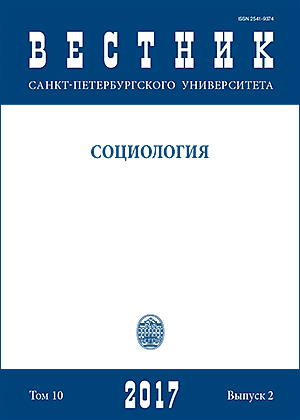ДЕТИ КАК ОБЪЕКТ СОЦИОГУМАНИТАРНОГО ИССЛЕДОВАНИЯ: СОЦИОЛОГИЧЕСКИЙ РАКУРС
DOI:
https://doi.org/10.21638/10.21638/11701/spbu12.2017.202Аннотация
Представлены четыре основные точки зрения на позиции детей в исследованиях детства, обозначенные П. Кристенсен и А. Праут: 1) ребенок как объект, этот подход исходит из понимания детей как человеческих существ, которые безответственны и зависимы от взрослых; 2) ребенок как субъект, подход основан на признании когнитивных способностей детей и их социальной компетентности в соответствии с их возрастом; 3) ребенок как социальный актор, подход предполагает, что субъектность ребенка распространяется на его собственное понимание и его собственный опыт; 4) ребенок как участник или соисследователь, подход основан на представлении детей активными гражданами, которые «должны быть вовлечены, информированы, проконсультированы и услышаны». В работе утверждается, что обозначенные позиции (роли) детей в исследованиях детства необходимо рассматривать как сосуществующие, а не взаимоисключающие.
Ключевые слова:
социологические исследования детства, роли детей, ребенок как объект, ребенок как субъект, ребенок как социальный актор, ребенок как участник
Скачивания
Библиографические ссылки
References
Загрузки
Опубликован
Как цитировать
Выпуск
Раздел
Лицензия
Статьи журнала «Вестник Санкт-Петербургского университета. Социология» находятся в открытом доступе и распространяются в соответствии с условиями Лицензионного Договора с Санкт-Петербургским государственным университетом, который бесплатно предоставляет авторам неограниченное распространение и самостоятельное архивирование.




